How Eye-Catching Photography Keeps the Climate Crisis in the News
Year in Review: Week 19 (May 6-12, 2024)
"The country is grappling with one of its worst floods in recent history. The heavy rains drenched several regions, and the flooding submerged entire towns. Blocked roads, broken dams, and washed away bridges make it impossible to provide food, water, or medicines in time to the isolated population." While the news anchor reads the text, we see pictures of houses and cars washed away in the flood. For the third time today, you see the video of a cow struggling in vain to get to the shore; it went viral; this is something other than piles of washed-away cars.
It was in the news in week 19, it was the news in week 20, it will be in next week's news. It's only because of the eye-catching photos and videos that this aspect of climate change still gets some attention, unlike the structural changes that the media should highlight.
Journalists like to combine disaster news with human-interest storytelling. In week 19, the New York Times started the story about flooding in Brazil with the experience of a snack bar salesman. First, he noted clay-colored water in the street. Next, it was up to his waist. Soon after, he ran for his life—the final scene: a rescue from a high building, where he found safety.
The narrative is storytelling that follows the traditions of the popular genre of 1970s disaster movies. In the opening scene, you see the passengers boarding the plane. You get to know some of them better because of something peculiar, like the man who demands a seat at the back of the plane because he has read it is the safest seat on board. Fifteen minutes into the movie, you recognize the guy in the plane's last row of seats after a crash in an inhospitable jungle. Swap the plane for a sinking cruise ship or towering inferno, and you remember what we used to watch.
These weeks, I read many news stories from 2024. We are back at the disaster movies of the 1970s, but this time for real. In week 19, there were floods in Brazil. Who remembers the more than one hundred people who died or the nearly 200,000 displaced persons? They disappear from the news when you have in the same month tornados in the US, the derecho in Texas, the hundreds of deaths during the heatwaves all over Asia, the nearly one million people that fled in Bangladesh for Cyclone Ramal, or the hundreds of deaths from severe flooding in Kenya.
The impacts of climate change are rapidly getting worse, but the media largely ignores reporting about the cause of the rapid increase in the severity and frequency of extreme weather. Greenhouse gas emissions go up but should go steeply down to avoid the worst of climate change. It's not happening.
We’ll always have the Paris Agreement
Fast forward from May to late November: we now know what we could only fear in May. Mr Trump will be back at the helm of the worst climate change contributor in history. Denying science, as he did during the pandemic, and in the hands of billionaires, he will likely step out of the Paris Agreement on climate change for the second time. It gives a terrible signal to all countries in the rest of the world: "We destroyed per capita more of the stable climate than anyone else, we don't care, we don't help, you sort out your own problems."
Mr. Trump has repeatedly promised voters that he will reduce energy and electricity prices by half within 18 months after his inauguration. He won't. Trump never keeps his promises. However, during his second office term, slashing regulations and the agencies needed for proper environmental policies will contribute massively to worse ecological results. This approach will have a worldwide negative impact by taking away incentives for other countries to adhere to the spirit or the letter of the Paris Agreement.
May 6-12, 2024
That is for next year. Today, we look at week 19, May 6-12, 2024. What did you do? Do you have photos to refresh your memory of that week, or can you share them in the chat? The chat is also for comments on these articles, comments on the news, questions, or anything you would like to share with our community. I have been away for two days, so I still have to catch up.
I look forward to reading all you shared in the chat.
In week 19, I was in the Netherlands, where the flowers exploded in color under blue skies. My week ended in Ottawa, Canada, where the City of Tulips lived up to its reputation. I will likely share more tulip photos tomorrow.
I don't know if all of you are on Substack notes already. Today, I published a short video and added these lines:
DUTCH DREAMS
Celebrating life beyond screens and schedules,
I fled to nature to walk in our famous sunken landscapes.
A heavy ship floated effortlessly to the East,
gliding silently above the dike.
I captured this moment of stillness
while realizing the irony of presenting it online.
Promoting offscreen moments of silence
and reconnecting to the outdoors
is hard to do in the digital age.
Before we move to the chat:
Did you know that clicking on the ❤️ at the bottom or the top of this post will help others discover my publication? You can also share it with others. The best way to support my work and not miss anything is by subscribing to this newsletter.
You can also support me by making a one-time donation through PayPal. I'm also on Buy Me a Coffee and Patreon. And since we're getting closer to Christmas, you can now give a gift subscription to friends and family.
Please join in the chat:
Tomorrow: Week 20:


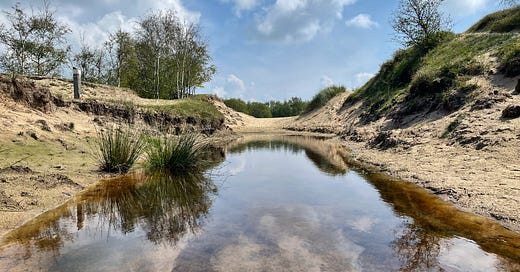




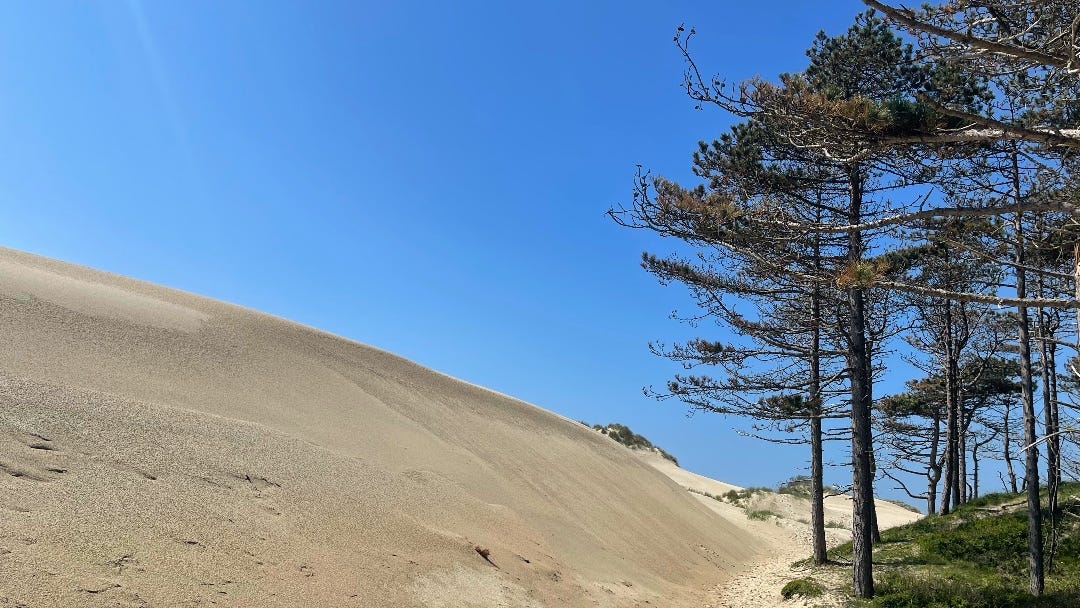
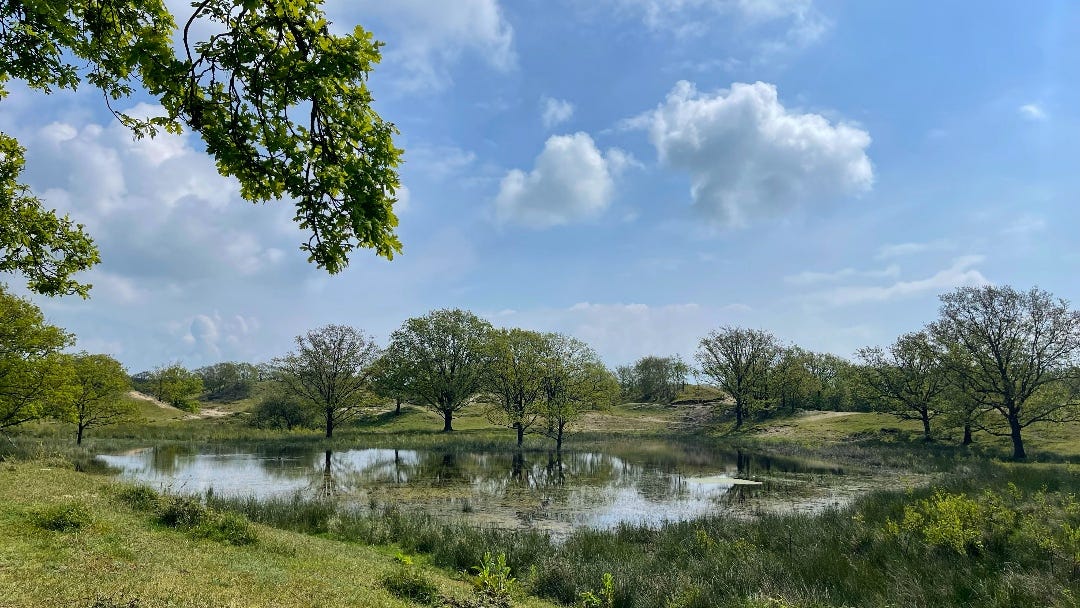
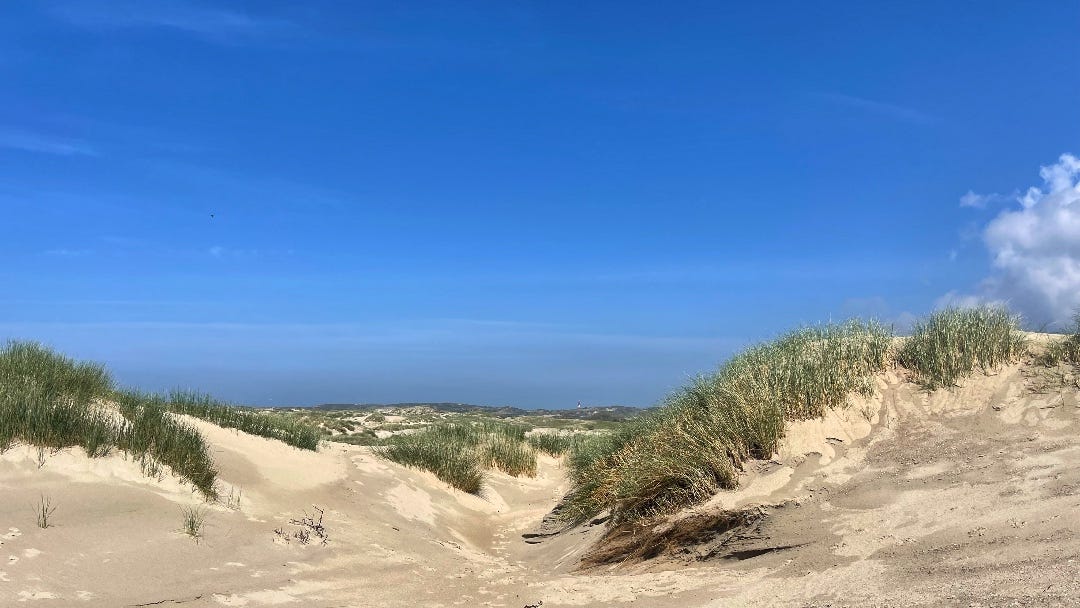
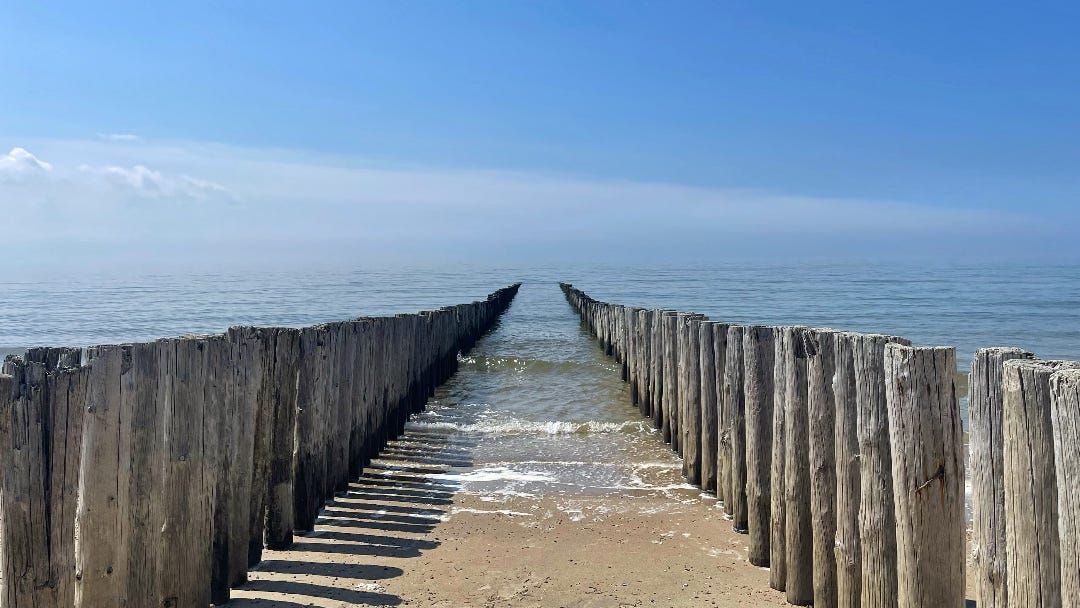
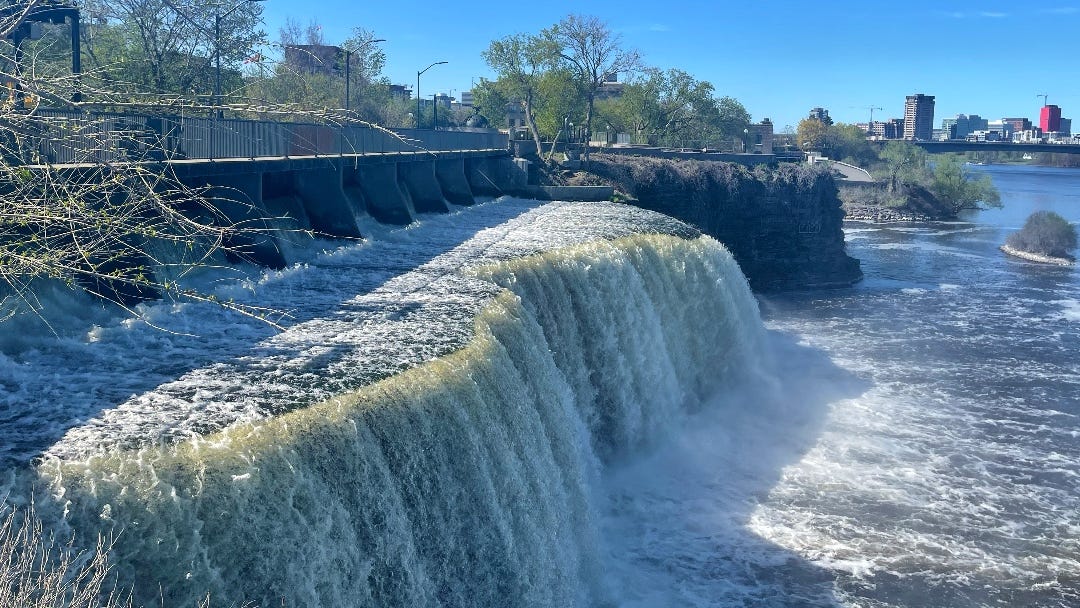


I'm afraid much of the world is sleepwalking. People watch the news. See the images and ask, "What the heck is going on?" I know. Many people know. I'm guessing many who asked the question probably know. Yet they voted for guy who will without a doubt make it worse.
I enjoyed the video, slow moving barge, the wake gently approaching. Soothing. Off to look at your soothing pictures 🌻
The mainstream media is absolutely failing to do its job.